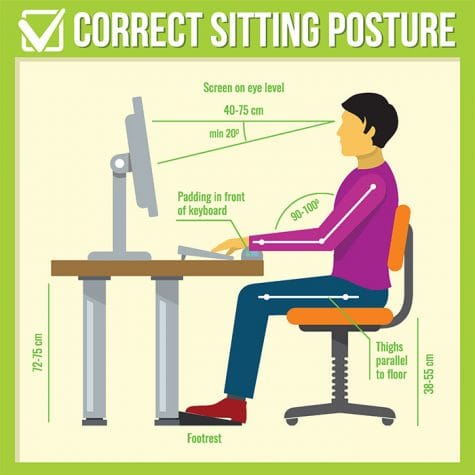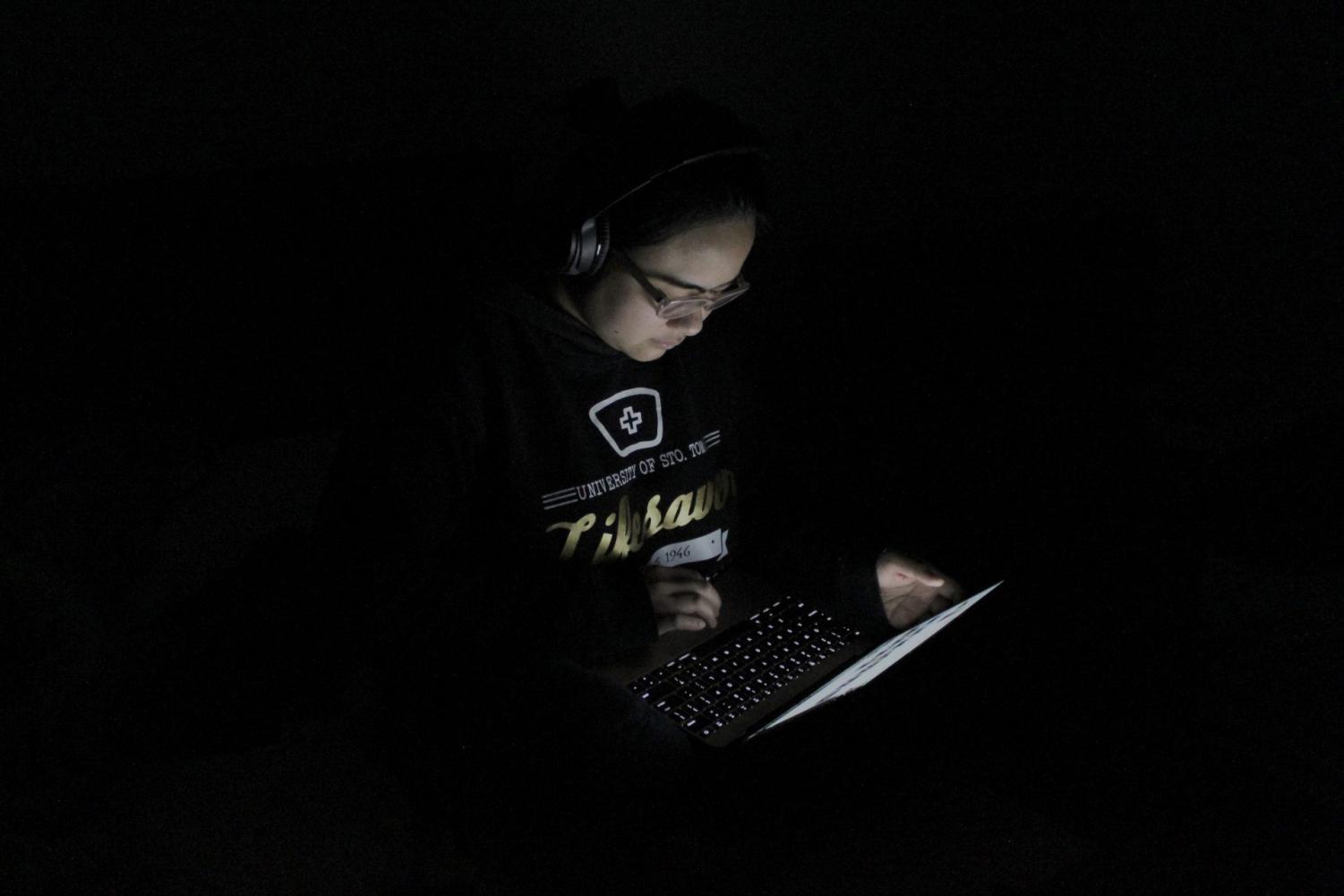Monitoring screen time as crucial as ever
May 6, 2020
While lockdown orders continue, our eyes may remain locked on screens all day, which raises an important question. In this digital age and time of social distancing, how do we find balance in our online and offline lives?
This has been a great concern ever since the advent of portable screen devices, but especially now.
Self-imposed screen time rules have changed, and rightly so, since most tasks had to transition online. We now listen to lectures in the living room. Exercise in the garage. Attend mass on the couch. Complete work responsibilities in the kitchen. Join club events in bed. The list goes on and on.
“Now your devices are portals to employment and education, ways to keep you inside and build community, and vital reminders you’re not alone,” said Geoffrey Fowler and Heather Kelly of the Washington Post. “The old concerns aren’t gone, but they look different when people are just trying to get by.”
More than ever before, we literally have the power of technology in the palm of our hands.
Through its abundant resources, it has become a gateway of information, entertainment and connection. After all, it satisfies our need for belongingness, which is an inherent human desire.
But what’s at stake?
According to Dr. Marni Harris, University of Chicago Medicine’s pediatric optometrist, too much blue light exposure can potentially damage the retina.

Blue light is located in the range of the visible light spectrum with a wavelength between 400-525nm. We would know from our high school science class that the blue light’s short wavelength means it has high energy. It penetrates to the retina more readily than other colors. The prevalence of screens in our lives can lead to overexposure to blue light.
“It can cause dry eye and even affect sleep quality,” Harris said.
DePaul senior Elise Fong said that her screen time has dramatically increased since the lockdown. She spends an average of seven to ten hours in front of a screen daily. Aside from school, her activities on screen includes watching movies, playing video games, being on FaceTime with friends and reading news online.
However, since Fong has “a very intense” glasses prescription of -4.75 in one eye and -5 in the other, she was prompted to find strategies to protect the health of her eyes.
“Even an hour or so of looking at screens now gives me headaches, so I try to limit that,” Fong said. “[I do this] by turning off my camera during Zoom meetings and taking my glasses off, or even rubbing my temples to decrease pressure.”
Related: Here’s how to set screen time limitations on Apple products
The American Optometric Association recommends that we follow the 20-20-20 rule; take a 20-second break to view something 20 feet away every 20 minutes of screen time. This rule helps alleviate digital eye strain, or computer vision syndrome.
Harris suggested preventing empty viewing or low-quality content and limiting screen time to only high-quality or essential content like video chatting with family members or doing school work.
In the meantime, experts have started rejecting screen shame.
Now that we are all stuck at home during the coronavirus pandemic, we should practice self-compassion. We shouldn’t be too hard on ourselves if being online is our means of coping. On the other hand, we also don’t want to risk our holistic wellness while doing so.
Susan Tran, a DePaul associate professor of psychology, said to consistently check in to see if you’re getting burnt out being online all day, or if your use of screen time is not good for you.
“If you find yourself struggling, which is understandable in these circumstances, let someone know,” Tran said. “Get support from family and friends, and find a therapist to talk to.”
In Markham Heid’s TIME article on assessing screen time, he sought the advice of Cal Newport, an associate professor of computer science at Georgetown University.
“The right question to ask is, what value are you getting out of the time you spend looking at screens, and what value are you losing,” Newport said. “If you find your screens are starting to displace activities you think are more important or meaningful, that’s a sign that you may want to reconsider your use.”
Sophomore Bryana Godoy finds it imperative to stay away from mindlessly scrolling on social media. During study breaks, she reallocates her energy by doing offscreen activities instead.
“I try doing puzzles, journaling and reading books,” Godoy said. “I read a lot of different genres because it is like an escape from our current situation [and leads] us into a new and exciting world that expands my mind with new ideas and concepts.”
Sophomore Dara Williams also supports this hobby.
“Reading just gives me peace of mind and sort of a break from the hustle and bustle of the quick Internet world,” Williams said. “Plus it helps further my knowledge in health.”
If Williams is not reading books or attending Zoom meetings, she is probably trying out new exercises.
“In the beginning of the quarantine, my physical health suffered because I was so unfamiliar with so much free time that instead of working out or staying active, I was using my time sitting on the couch and doing nothing,” Williams said.
Williams advocates for physical movement whether it’s a quick high-intensity interval training, a run or even just a stretch. She has noticed various benefits ranging from weight loss to increased mental health productivity.
So what’s the ideal amount of screen time?
“While it sounds like a simple question, experts say the ‘just right’ amount depends on what type of screen a person is looking at, why they’re looking at it, and – maybe most importantly – what they’re forgoing in order to spend time on screens,” Heid said.
The next time we go down the rabbit hole of unnecessary yet habitual scrolling, maybe we should take a step back and weigh our options. The ultimate goal is finding a balance between onscreen and offscreen activities to ensure that we remain physically, mentally and emotionally healthy.
